Will new British Prime Minister Boris Johnson change the 'game'?
(Baonghean) - The Conservative Party said “yes” to Boris Johnson, but will the whole of Britain give him a chance? This is the most asked question since Boris Johnson won a landslide victory in the Conservative Party's vote to become British Prime Minister.
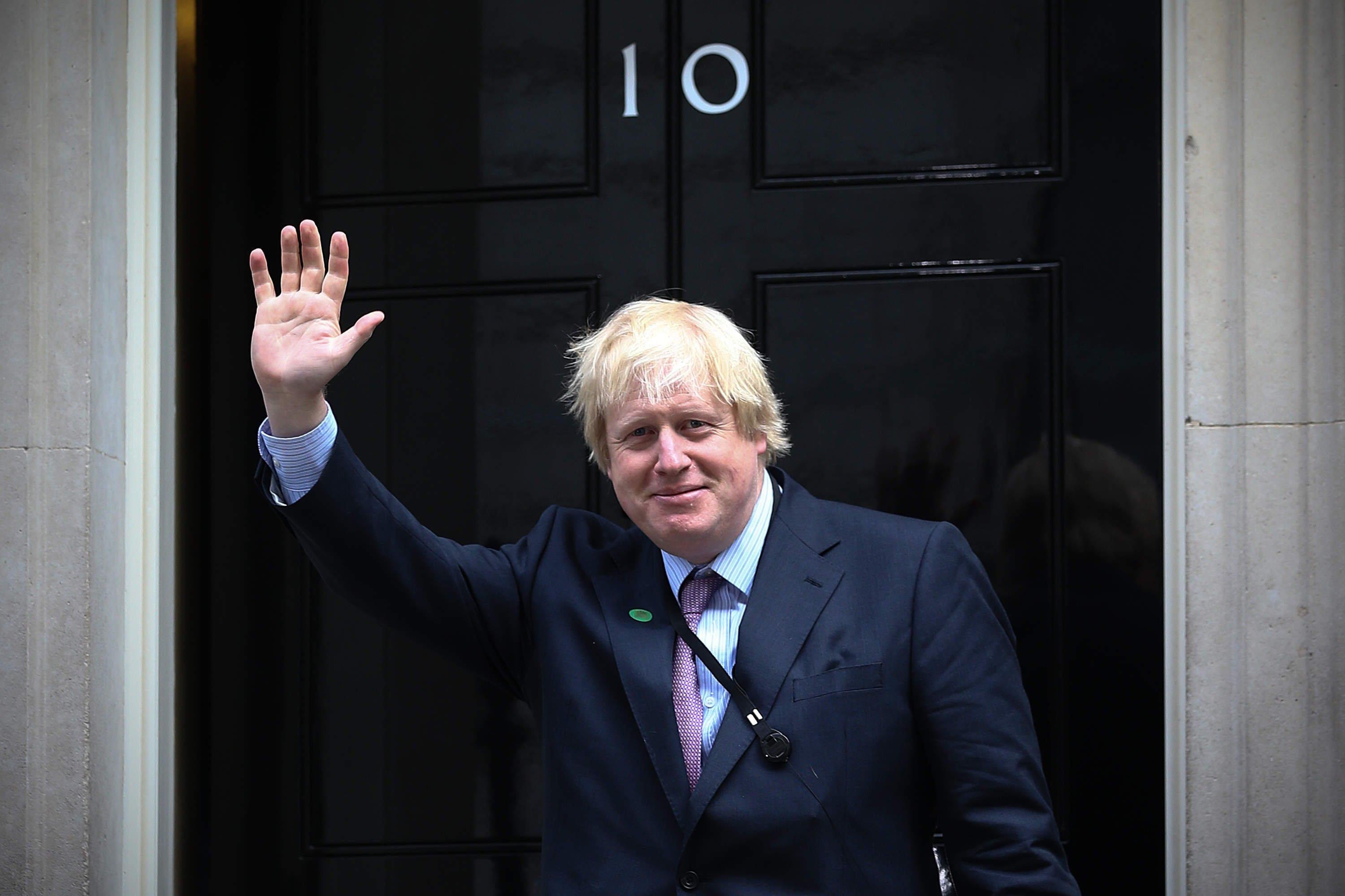 |
| Boris Johnson becomes the new owner of No. 10 Downing Street. Photo: Getty |
"famous" politician
On July 24, Boris Johnson officially took office as British Prime Minister, replacing Theresa May. This was not beyond the expectations of observers and the British people since the race for the position of British Prime Minister began. Boris Johnson was noticed not because he was the most promising candidate, the one who could help Britain escape the deadlock caused by Brexit, but because he was a rather "famous" figure.
Boris Johnson’s popularity stems from his unique way of “coloring” his personal image. The international media is no stranger to the image of a politician with unkempt blond hair, Johnson’s sloppy way of dressing, and especially his controversial actions and statements, which have been the subject of heated discussion among observers for many years.
When he was Mayor of London or British Foreign Secretary, Boris Johnson often made "slip of the tongue" statements that even affected international diplomatic relations. He once compared the European Union (EU) to Nazi leader Adolf Hitler, saying that the EU was planning to establish a dominant nation, like Hitler's ambition in the past. He said that table tennis originated from the British dining table, while in fact this is a sport invented by the Chinese, or once called US presidential candidate Hillary Clinton "a brutal nurse in a mental hospital"....
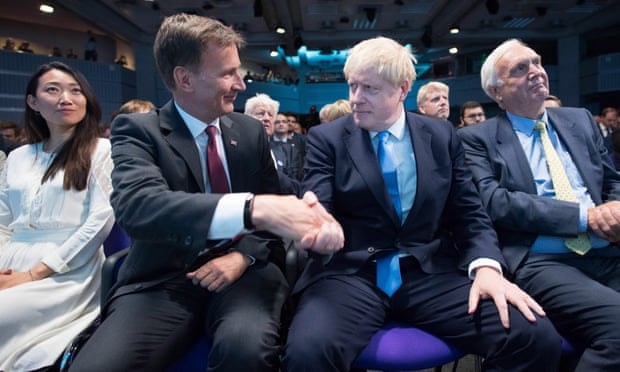 |
| Boris Johnson and his opponent Jeremy Hunt shake hands after the vote count was announced on July 23. Photo: EPA |
In the UK, Mr. Johnson is also a politician who stands out for his consistent, hard-line stance on Brexit. Right from the beginning of the Brexit movement, Mr. Johnson, then Mayor of London, was very active in traveling around the country to reassure voters about the benefits of Brexit.
As a supporter of Britain leaving the EU, Mr. Johnson has strongly declared a future of “leaving” even without any agreement. That means, if the two sides still fail to reach binding economic or political agreements by the deadline, Britain will still definitely leave in a “no-deal” manner.
For Brexit supporters, Mr. Johnson's clear and decisive stance was warmly welcomed, with some even comparing him to former Prime Minister Winston Churchill - a British hero. This helped Mr. Johnson easily receive the majority of votes from Conservative Party members - who share Mr. Johnson's hardline Brexit views.
In short, the difference in personality, actions and words of a politician is the advantage that Mr. Johnson has. In some ways, the rise of Boris Johnson is similar to the case of US President Donald Trump in the 2016 election.
Will the optimism last?
Boris Johnson himself, when entering the race to become Prime Minister, was determined to appear as a real leader who changes the game, not a lovable but unreliable "clown". But the reality is certainly not easy for a leader who likes to "break the framework". The proof is that although he became the new owner of No. 10 Downing Street, the opposition to Mr. Johnson has increased day by day. A series of ministers and government officials announced their resignations as soon as Mr. Johnson became Prime Minister, which is an illustration of this opposition.
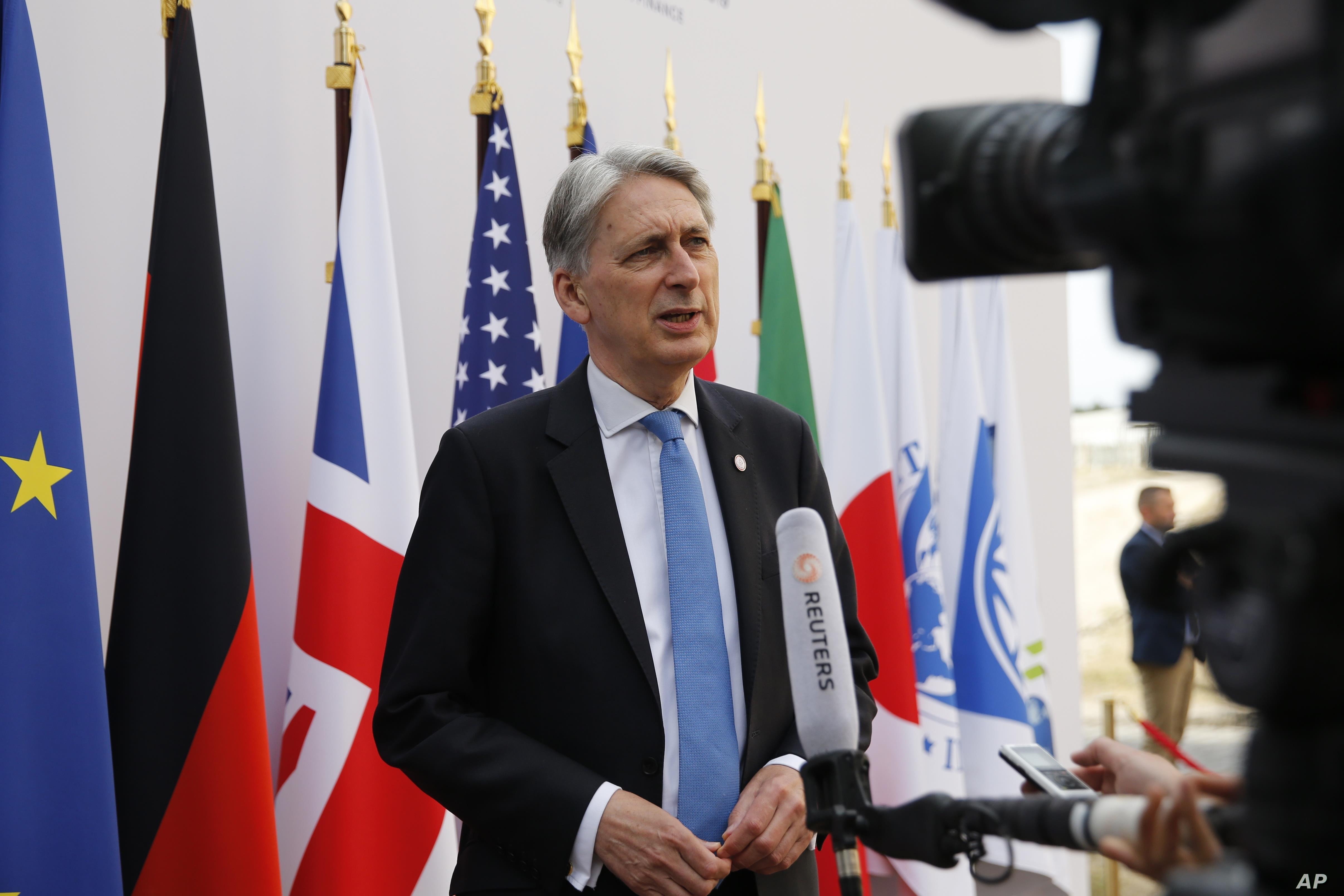 |
| Finance Minister Philip Hammond announced that he will resign in protest against new Prime Minister Boris Johnson's "hard Brexit" policy. Photo: AP. Photo: AP |
Currently, the Conservative Party group opposing Mr. Johnson in the British Parliament is 42 people, still showing a very tough attitude towards Mr. Johnson and ready to trigger a vote of no confidence in Mr. Johnson's government if he does not give up the intention of Brexit without a deal. If he cannot "appease" this group, Mr. Johnson will not have a strong enough majority in Parliament and it will be very difficult for him to run the government.
The second issue, which both the Conservative Party and the opposition Labour Party will be watching closely, is how Mr. Johnson will form a cabinet and who will be appointed to key ministerial positions. This is of interest not only because of its importance but also because of the personal aspect of Mr. Boris Johnson, as his opponents, especially the opposition Labour Party, have long attacked Mr. Johnson for having a personal leadership style.
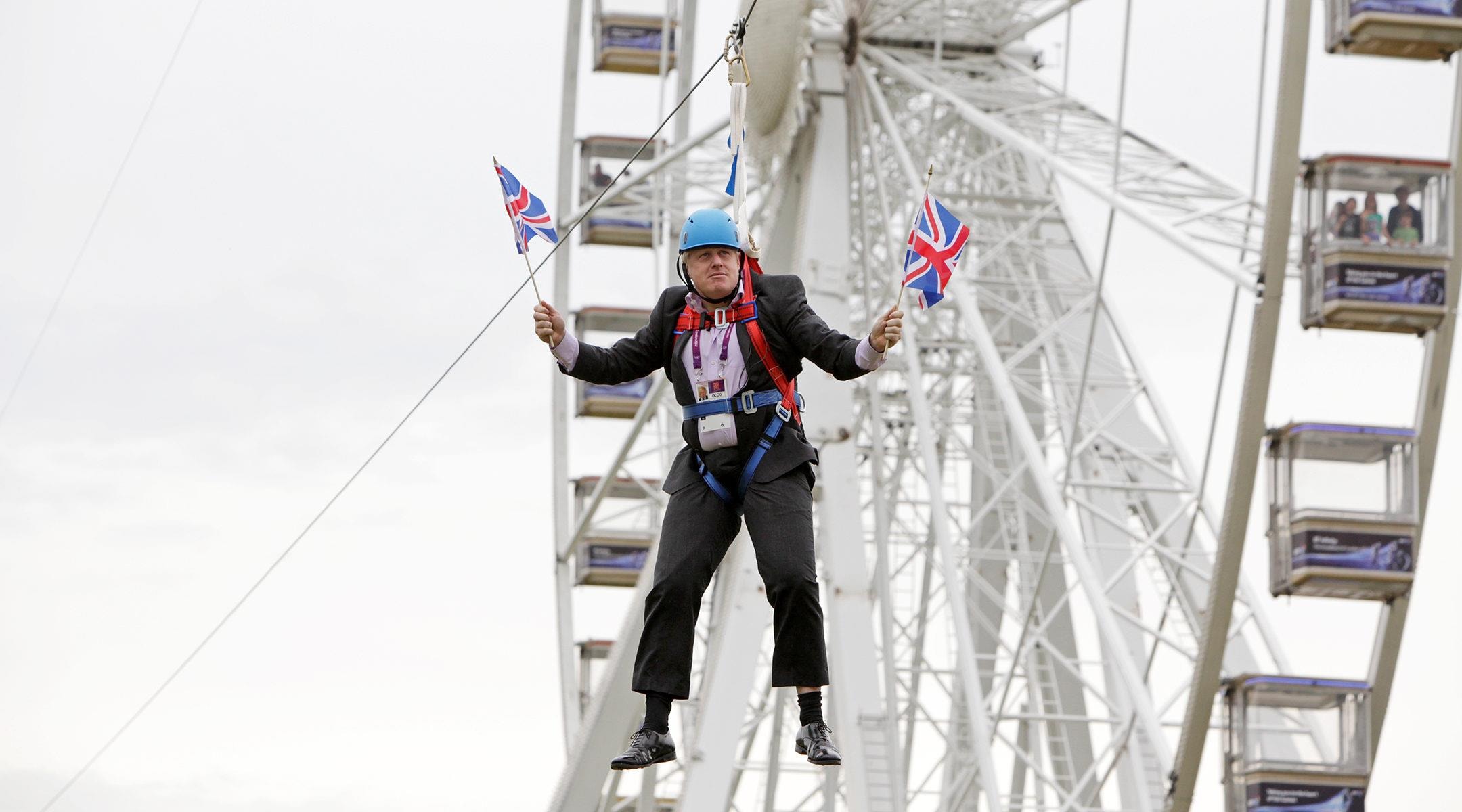 |
| Boris Johnson's "bizarre" act of hanging from a zip line to cheer on the London Olympics in 2012. Photo: Barcroft Media |
In addition, the giant “rock” for Mr. Johnson when sitting on the Prime Minister’s chair is nothing other than solving the “exit” of the UK. How to make a difference, how to break the deadlock and resolve Brexit smoothly are still open questions. Although he has always shown a very tough attitude about Brexit, up to now, this attitude of Mr. Boris Johnson has not been accompanied by any really clear and specific plans other than the slogan “Brexit or die”. It is not clear whether Mr. Johnson will decide to continue negotiating with the EU on Brexit, convince Parliament to pass an old agreement or “give up” and wait until October 31 to “leave”, but any choice will have risks.
In case Mr. Johnson's calculations do not go as expected, the confrontation and political deadlock between the government and the British House of Commons around Brexit continues, and there is no concession from the EU, the new Prime Minister will be forced to hold an early election. At that time, whether the UK will give him the opportunity as the Conservative Party just did is difficult to predict.
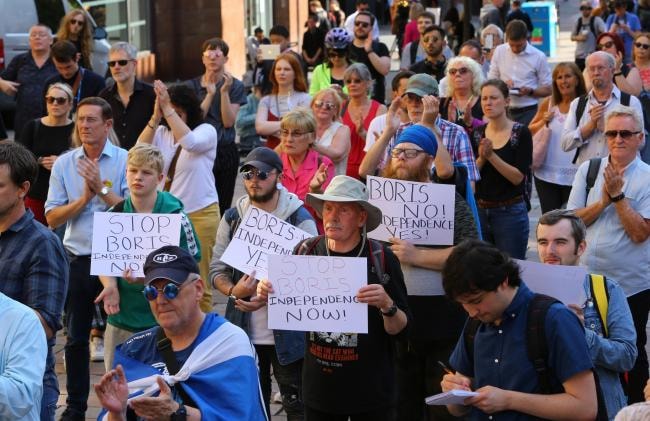 |
| Hundreds of people gathered in Glasgow city centre on the evening of July 23 to protest Boris Johnson's victory. Photo: The National |
In other words, the election of a new leader for the UK has come to an end, but it is not a miracle solution that can immediately help the UK escape the most complicated political situation since World War II. A new phase of the UK has just begun. But with Boris Johnson's controversial personality and style, plus his somewhat extreme and ambiguous views on Brexit, the UK political scene in the coming days will have more potential for conflict than before, especially when Brexit has reached a stage where it is difficult to delay further and all parties need to make a decisive decision.
And of course there will be no political “honeymoon” for Mr. Johnson, but on the contrary, a thorny “battlefield”./.


